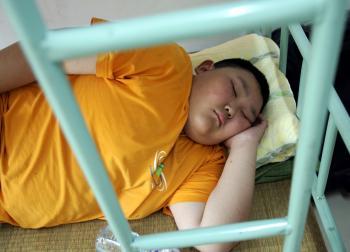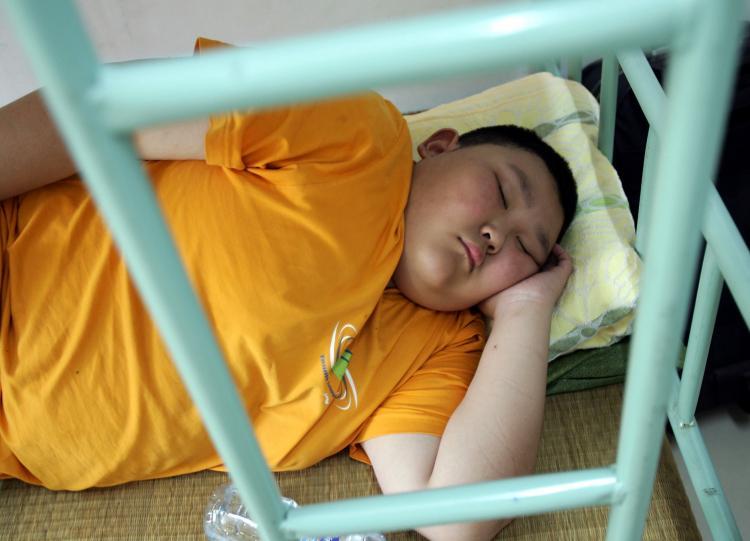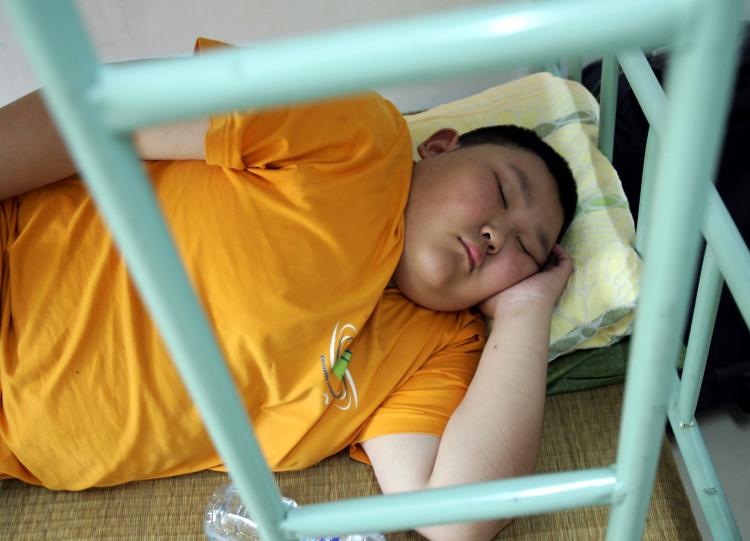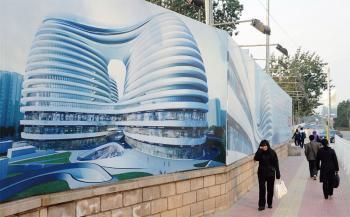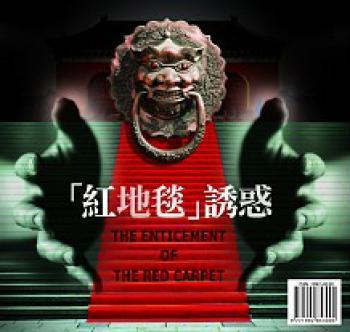As the Beijing Olympics kicked off and China won one gold medal after another, the Chinese regime’s state run media claims China is determined to win as many gold medals as possible. But, do more gold medals reflect better overall fitness of Chinese?
Declining Physical Fitness
The fact is, while China fights to become the leading medal miner in the Olympics, Chinese physical fitness has declined year after year. This is especially true with the young generation.
The 2004 National Student Physical Health Survey polled some 183,000 students aged between 7 to 22 years from 16 cities, autonomous regions, and municipalities. The results showed that students’ physical health condition continued to decline in speed, endurance flexibility, explosive force, vital capacity, and other physical health indicators.
Last year, the regime’s mouthpiece in Shanxi province reported that Chinese juveniles’ vital capacity, speed, strength, and other physical health indicators had dropped to the lowest in 20 years. In particular, endurance and strength had declined and obesity and nearsightedness had increased. Obesity in children was very common.
Dean of College of Physical Education and Sports in Beijing Normal University Mr. Mao Zhenming pointed out that the main reason for the decline in physical health is the lack of muscular and outdoor activity.
Former Director of Education Bureau in Health and Art Section under China Ministry of Education, Mr. Wang Long once said that the trend was directly linked to students’ lack of exercise time and physical activity.
Lack of Sports Facilities
According to an August 11 report by Chinese regime’s mouthpiece, People’s Daily, China has 6.58 training fields for every ten thousand Chinese, averaging 1.03 square meters per person. This is far less than the 200 sports fields for every ten thousand people in U.S., Japan, and other developed countries.
Average yearly expenditure in physical exercise is less than 3 U.S. dollars in China, which is lower than 12 dollars in Asia and 36 dollars worldwide, and far less than 300-500 dollars in European countries and the U.S, according to another report by Science Times published on August 5.
Last year, China Juveniles Research Center conducted a survey on 2,500 middle school and elementary school students in 6 big cities, and the results showed that half of the young students admitted that they had insufficient exercise, and forty percent of them failed to exercise due to lack of proper environment.
According to Zhejiang Online News, none of the schools in Hainan Province had given all the mandated physical education classes. Chief of Health and Arts Sectors in Hainan Province Ministry of Education said that a great number of schools had problems offering classes because of the small sports field or the lack of a sports field, and because of the lack of exercise equipment in the case of rural schools. A longtime physical education teacher said that ten years ago most students could finish running 1,000 meters (boy) and 800 meters (girl). Now oftentimes half of students could barely make it through a 400 meter run.
Leading Gold Medal Count, Not Overall Leading Athletic Performance
After being successfully awarded with the hosting of 2008 Olympics, Beijing has spent huge amounts of money building the Olympic stadium and facilities. Yet these luxurious facilities are out of reach to the vast majority of young Chinese. Even a decent sports facility charges a lot of money, and is open to only a few elite athletes. Youngsters in cities and counties cannot afford to this kind of expense. Sports facilities in schools are not open to students during holidays. It’s even worse for young people in rural areas.
Yet China invested about four to five million (approximately US$57,000 to US$72,000) on every Olympic athlete, according to the Research Center for Sports Sociology in General Administration of Sport of China. Considering the 400 Chinese Olympic team members winning 32 gold medals, the average cost of one gold medal is about 50-60 million yuan (approximately US$ 7 to 8.5 million).
Vice president of Chinese Olympic Committee Mr. Wu Shouzhang said that it is hard to calculate. Take the example of Liu Xiang, a Chinese Olympic gold medalist and world champion, there were also doctors, science researchers, nutritionists, field workers, document workers who were at his service, and not to mention the resources spent on him during his early years in Shanghai.
It was reported that in western countries such as Germany, there are close to 90,000 civilian sports organizations with 27,000,000 members, and with swimming pool, football field, stadium, and skating rink in every village opening to all villagers. Accordingly, the gold medal count of a nation with strong athletic performance usually reflects the result of sports being available and accessible to all.
It is no wonder renowned Taiwan author Lung Ying-tai commented that sports competition in western countries is for the sake of encouraging sports for all in their own countries and for the sake of achieving health, whereas sports competition in China is for the sake of showing off China’s power. It seems that the health of Chinese is not the concern at all. Obviously, a nation with leading Olympic gold medal count does not translate into a nation with strong athletic performance.
